Related Research Articles
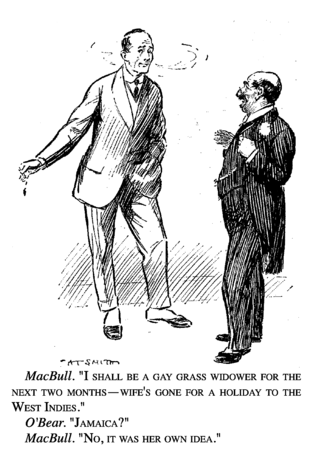
A pun, also rarely known as paronomasia, is a form of word play that exploits multiple meanings of a term, or of similar-sounding words, for an intended humorous or rhetorical effect. These ambiguities can arise from the intentional use of homophonic, homographic, metonymic, or figurative language. A pun differs from a malapropism in that a malapropism is an incorrect variation on a correct expression, while a pun involves expressions with multiple interpretations. Puns may be regarded as in-jokes or idiomatic constructions, especially as their usage and meaning are usually specific to a particular language or its culture.
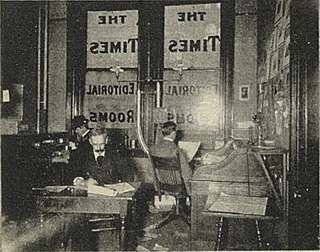
Editing is the process of selecting and preparing written, photographic, visual, audible, or cinematic material used by a person or an entity to convey a message or information. The editing process can involve correction, condensation, organisation, and many other modifications performed with an intention of producing a correct, consistent, accurate and complete piece of work.
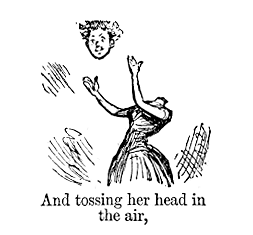
A cliché is an element of an artistic work, saying, or idea that has become overused to the point of losing its original meaning or effect, even to the point of being weird or irritating, especially when at some earlier time it was considered meaningful or novel. In phraseology, the term has taken on a more technical meaning, referring to an expression imposed by conventionalized linguistic usage.
In psychoanalysis, a Freudian slip, also called parapraxis, is an error in speech, memory, or physical action that occurs due to the interference of an unconscious subdued wish or internal train of thought. Classical examples involve slips of the tongue, but psychoanalytic theory also embraces misreadings, mishearings, mistypings, temporary forgettings, and the mislaying and losing of objects.

Creative nonfiction is a genre of writing that uses literary styles and techniques to create factually accurate narratives. Creative nonfiction contrasts with other nonfiction, such as academic or technical writing or journalism, which are also rooted in accurate fact though not written to entertain on prose style. Many writers view creative nonfiction as overlapping with the essay.
Rick Salutin is a Canadian novelist, playwright, journalist, and critic and has been writing for more than forty years. Until October 1, 2010, he wrote a regular column in The Globe and Mail; on February 11, 2011, he began a weekly column in the Toronto Star.
A technical writer is a professional information communicator whose task is to transfer information between two or more parties, through any medium that best facilitates the transfer and comprehension of the information. Technical writers research and create information through a variety of delivery media. Example types of information include online help, manuals, white papers, design specifications, project plans, and software test plans. With the rise of e-learning, technical writers are increasingly becoming involved with creating online training material.
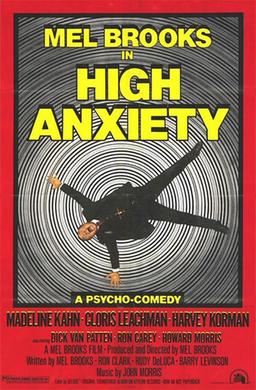
High Anxiety is a 1977 American satirical comedy film produced and directed by Mel Brooks, who also plays the lead. This is Brooks' first film as a producer and first speaking lead role. Veteran Brooks ensemble members Harvey Korman, Cloris Leachman, and Madeline Kahn are also featured. It is a parody of Freudian therapy and Alfred Hitchcock films.

William Henry Irwin was an American author, writer, and journalist who was associated with the muckrakers.

A memorandum or a briefing note is a written message that is typically used in a professional setting. Commonly abbreviated "memo," these messages are usually brief and are designed to be easily and quickly understood. Memos can thus communicate important information efficiently in order to make dynamic and effective changes.
Technical communication is communication of technical subject matter such as engineering, science, or technology content. The largest part of it tends to be technical writing, though importantly it often requires aspects of visual communication. Technical communication also encompasses oral delivery modes such as presentations involving technical material. When technical communication occurs in workplace settings, it's considered a major branch of professional communication. In research or R&D contexts, it can overlap with scientific writing.

Andrew Tobias is an American writer. He has written extensively about investment, as well as politics, insurance, and other topics. He is also known for writing The Best Little Boy in the World, a 1973 memoir – originally pseudonymous – about life as a gay man. From 1999 until 2017, he was treasurer of the Democratic National Committee.
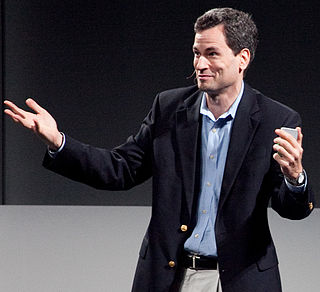
David Welch Pogue is an American technology and science writer and TV presenter, and correspondent for CBS News Sunday Morning.

Richard Behar is an American investigative journalist. Since 2012, he has been the Contributing Editor of Investigations for Forbes magazine. From 1982 to 2004, he wrote on the staffs of Forbes, Time and Fortune. Behar's work has also been featured on BBC, CNN, PBS, FoxNews.com and Fast Company magazine. He coordinates Project Klebnikov, a media alliance to probe the Moscow murder of Forbes editor Paul Klebnikov. He is writing a book about Bernard Madoff. Behar is editor of Mideast Dig.
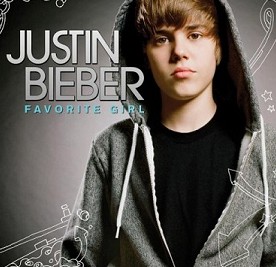
"Favorite Girl" is a song by Canadian singer Justin Bieber. The song was written and produced by D'Mile, and Antea Birchett, Anesha Birchett, and Delisha Thomas also receive writing credits. Bieber debuted the acoustic version of his song in his official YouTube account after American country pop singer Taylor Swift used Bieber's single "One Time" as background music in one of her video tour diaries. The song was later released exclusively to iTunes as the second promotional single from his debut studio release, My World on November 4, 2009.

A periodical literature is a published work that appears in a new edition on a regular schedule. The most familiar example is a newspaper, but a magazine or a journal are also examples of periodicals. These publications cover a wide variety of topics, from academic, technical, trade, and general interest to leisure and entertainment.
Blake Snyder was an American screenwriter, consultant, author and educator based in Los Angeles. His screenplays include the comedies Stop! Or My Mom Will Shoot (1992) and Blank Check (1994).
Blake Butler is an American writer and editor. He edits the literature blog HTMLGIANT, and two journals: Lamination Colony, and concurrently with co-editor Ken Baumann, No Colony. His other writing has appeared in Birkensnake, The Believer, Unsaid, Fence, Willow Springs, The Lifted Brow, Opium Magazine, Gigantic and Black Warrior Review. He also wrote a regular column for Vice Magazine.

HP Tinker is a Manchester-based short story writer of comic avant garde fiction. In 2007, Time Out called him an "unsung comic genius" and he has been referred to as "the Thomas Pynchon of Chorlton-cum-Hardy".
Collaborative pedagogy stems from the process theory of rhetoric and composition. Collaborative pedagogy believes that students will better engage with writing, critical thinking, and revision if they engage with others. Collaborative pedagogy pushes back against the Current-Traditional model of writing, as well as other earlier theories explaining rhetoric and composition; earlier theories of writing, especially current-traditional, emphasizes writing as a final product. In contrast, collaborative pedagogy rejects the notion that students think, learn, and write in isolation. Collaborative pedagogy strives to maximize critical thinking, learning, and writing skills through interaction and interpersonal engagement. Collaborative pedagogy also connects to the broader theory of collaborative learning, which encompasses other disciplines including, but not limited to, education, psychology, and sociology.
References
- ↑ Blake, Gary. "The Communication Workshop". Business Communication and Writing. Retrieved June 26, 2012.
- ↑ Mark Crawford, How Engineers Can Improve Technical Writing. ASME, September 2012.
- ↑ S. W. Delchamps and A. J. Grant, Department of Finance Writing Handbook Archived August 25, 2012, at the Wayback Machine . Northern Illinois University Department of English, January 1998.
- ↑ Dr. Gary Blake Archived August 22, 2009, at the Wayback Machine at The Communication Workshop.
- ↑ Blake, Gary (1978). The Status Book. Doubleday. p. 178. ISBN 9780385135498.
- ↑ Blake, Gary; Bly, Robert W. (1992). The elements of business writing (1st Collier Books ed.). New York: Collier Books. p. 140. ISBN 9780020080954.
- ↑ Blake, Gary; Bly, Robert W. (1993). The elements of technical writing (1st ed.). New York: Macmillan Publishers. p. 173. ISBN 0020130856.
- ↑ Blake, Gary (2012). A Freudian Slip Is When You Say One Thing but Mean Your Mother: 879 Funny, Funky, Hip, and Hilarious Puns. Skyhorse Publishing. p. 272. ISBN 978-1616087340.
- ↑ Blake, Gary. "Claims Magazine articles by Gary Blake". Insurance Writing. Claims Magazine. Retrieved June 26, 2012.